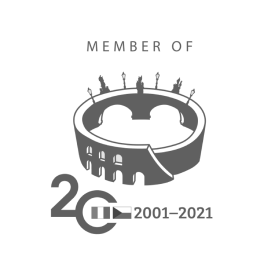
Protests in the Czech Republic: property tax increases
The state, with Prague as its capital, is currently facing a significant controversy as the government has announced a substantial increase in property taxes. This measure, aimed at strengthening public finances, has caused a general uproar, opening a debate on the potential economic and social impacts.
The upcoming property tax increase is one of the most significant maneuvers in the recent history of the Czech Republic. The legislation stipulates that property taxes will rise on average by 50%, with variations depending on the location and value of the property. It is expected that urban areas such as Prague and Brno will see the highest increases due to high property values and excessive demand. This measure is part of a broader fiscal strategy aimed at addressing the budget deficit and financing public services.
Finance Minister Alena Schillerová has deemed the increase essential to maintain economic stability and ensure the continuity of essential public services. In fact, the government claims that the revenue generated by the increase in property tax will be channeled into improvements in infrastructure, healthcare, and education—crucial areas for the nation’s development, especially from a long-term perspective.
Despite the explanations provided for this maneuver, the announcement has been met with widespread criticism and concern among property owners, real estate investors, and the general public. Many believe that the tax increase is disproportionate and will place a hefty burden on homeowners, especially those with fixed incomes or modest means. There is also the fear that the increase could exacerbate the already critical issue of housing affordability in major cities.
Real estate experts estimate that the tax increase could lead to a slowdown in the real estate market, as potential buyers may be deterred by the increased costs of properties. This could lead to a reduction in real estate sales, directly causing a devaluation of property assets, which would negatively impact the overall economy.
This tax increase comes at a time when the Czech economy is facing multiple challenges, including inflation and the lingering effects of the Covid-2019 pandemic. While the government views the tax increase unilaterally as a necessary measure to stabilize public finances, economists are divided into two schools of thought regarding the potential impact of the legislation. Some believe that the additional revenue is essential to address budget shortfalls and invest in critical public infrastructure. However, others consider that the increase could erode households’ disposable income, leading to reduced consumer spending and thus slowing economic growth.
The significant increase in property taxes in the Czech Republic has therefore sparked a debate on economic policy and social equity. The government is going ahead with its plan, facing the challenge of balancing fiscal responsibility with public sentiment and the need to maintain economic stability. The coming months will be crucial to see the real impact of the tax increase on both the real estate market and the Czech economy in general.
Sources: https://www.pragueforum.cz/




